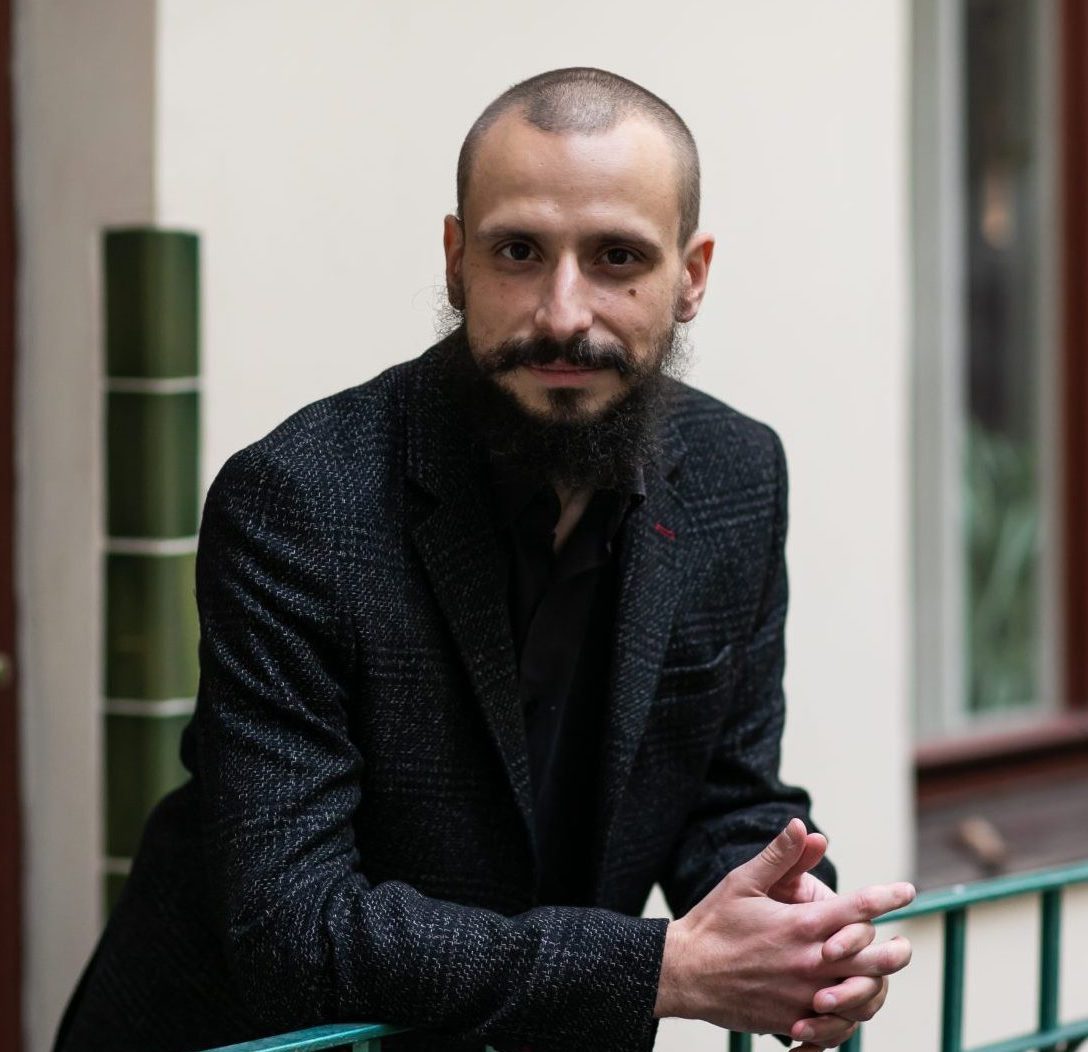He works as an associate professor at the Eastern Europe Department at the History Faculty and an associate professor at the Department of Ukrainian Studies at the Faculty of Philosophy at V. N. Karazin Kharkiv National University. He is a member of the Ukrainian Association of Researchers of Religion and the International Association for the Humanities, a participant in the international research programs "CityFace: Practices of Self-Representation of Multinational Cities in the Industrial and Post-Industrial Era," "CITY AND WAR: Destruction, preservation and rethinking of the urban cultural heritage of large cities of South-Eastern Ukraine during the period of Russian military aggression," "Fellowship for Ukrainian Scholars in Jewish Studies" (The American Academy for Jewish Research, New York Public Library and Center for Jewish Studies at Fordham).
During his research residence in Lviv supported by the Institute for Human Science, he plans to study the specifics of constructing images of Ukrainian cities in the church historiography of the nineteenth-century Russian Empire. He is particularly interested in how discussions about the imagined boundaries of "Russianness" in the secular historiography of that period influenced the church historiography, whether church historians of the Russian Empire perceived Ukrainian cities as something different in comparison with the cities of other regions of the empire, how did they symbolically separate urban space from rural space? What was the reason for the choice of metaphors used to describe Ukrainian cities in the works of church historians of the Russian Empire? To what extent were the religious concepts of earlier epochs and biblical images actualized in the descriptions of Ukrainian cities by nineteenth-century church historians; how did the theological, historiosophical, and socio-political views of the authors, changes in methodological approaches to the study of history, general cultural trends, and processes of nation-building in the "long nineteenth century" influence the perception of Ukrainian cities?
